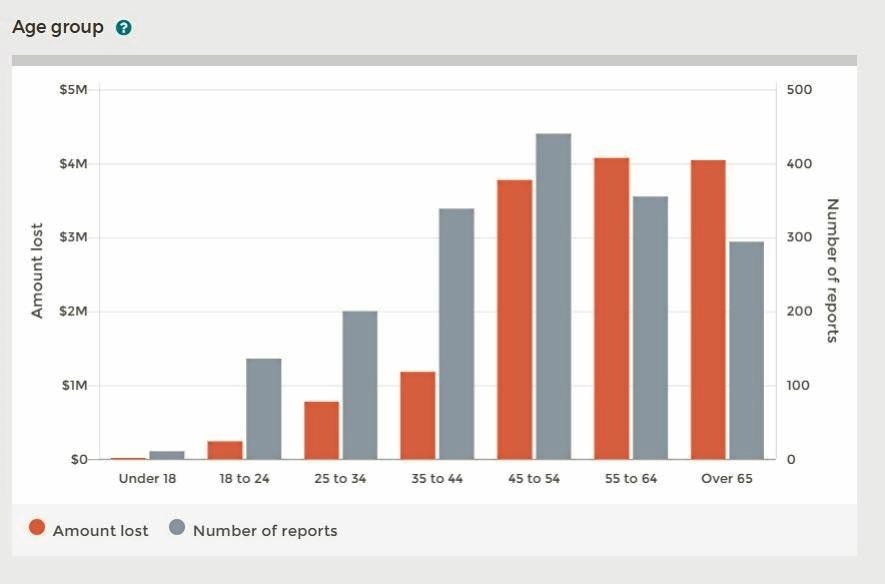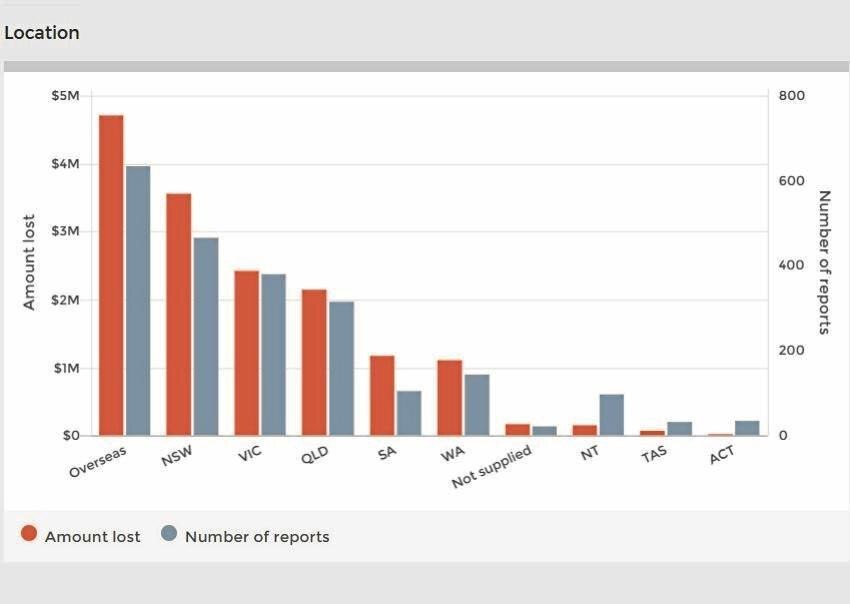OPINION: Rural towns now a target for scammers, take care
ELITE criminals are coming closer than ever and preying on people who are isolated and lonely in rural town. Here's how to protect yourself.

Opinion
Don't miss out on the headlines from Opinion. Followed categories will be added to My News.
SCAM. It's a word we might read often, but we never think it will apply to us.
News that people in Warwick are being taken advantage of is a sad and sobering reminder that the internet opens our community up to a whole new realm of criminal activity.
Often, the victims are just looking for love or companionship.
They are generous enough to send thousands of dollars to help others get out of situations the victims believe could be threatening someone they have come to trust and, in some cases, love.
Whether it be in person or over the internet, falling in love or even just making a new friend can be a joyous and intoxicating experience and it's a shame that this can be manipulated.

When we hear of people being made victims it might prompt us to go forward with our guard up.
For our older population, who grew up without the internet and social media, the signs of suspicious activity may be harder to spot.
But the young ones can get swept up in scams too, and people aged 18-24 have lost over $125,000 to internet dating scams this year alone.
The Scamwatch and ACORN websites both provide useful, detailed information about how to spot the signs of a scam and what to do when you think you or someone else might be a victim.
Both sites are worth a look, because as we've been told, it can happen to anyone and the scams out there are growing in prevalence and complexity.

Early indicators
You meet someone online and after just a few contacts they profess strong feelings for you, and ask to chat with you privately. If you met on a dating site they will try and move you away from the site and communicate via chat or email.
Their profile on the internet dating website or their Facebook page is not consistent with what they tell you. For example, their profile picture looks different to their description of themselves, or they say they are university educated but their English is poor.
After gaining your trust - often waiting weeks, months or even years - they tell you an elaborate story and ask for money, gifts or your bank account/credit card details.
Their messages are often poorly written, vague and escalate quickly to love.
If you don't send money straight away, their messages and calls become more desperate, persistent or direct. If you do send money, they ask you to send more.
Protect yourself
Never send money to someone you haven't met in person.
Always consider the possibility that the approach may be a scam, particularly if the warning signs listed above appear. Try to remove the emotion from your decision making no matter how caring or persistent the 'prospective partner' is.
Do an image search of your admirer to help determine if they really are who they say they are. You can use image search services such as Google (link is external) or TinEye (link is external).
Be alert to things like spelling and grammar mistakes, inconsistencies in their stories and others signs that it's a scam like their camera never working if you want to Skype each other.

Be cautious when sharing personal pictures or videos with prospective partners, especially if you've never met them before. Scammers are known to blackmail their targets using compromising material.
If you agree to meet a prospective partner in person, tell family and friends where you are going. Scamwatch strongly recommends you do not travel overseas to meet someone you have never met before. Consider carefully the advice on www.smarttraveller.gov.au (link is external) before making any plans.
Be wary of requests for money. Never send money or give credit card details, online account details, or copies of important personal documents to anyone you don't know or trust.
Avoid any arrangement with a stranger that asks for up-front payment via money order, wire transfer, international funds transfer, pre-loaded card or electronic currency, like Bitcoin. It is rare to recover money sent this way.
Do not agree to transfer money for someone else: money laundering is a criminal offence.
Be very careful about how much personal information you share on social network sites. Scammers can use your information and pictures to create a fake identity or to target you with a scam.
For more information visit: https://www.scamwatch.gov .au/types-of-scams/dating -romance.
Originally published as OPINION: Rural towns now a target for scammers, take care






